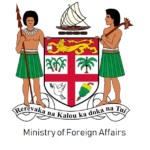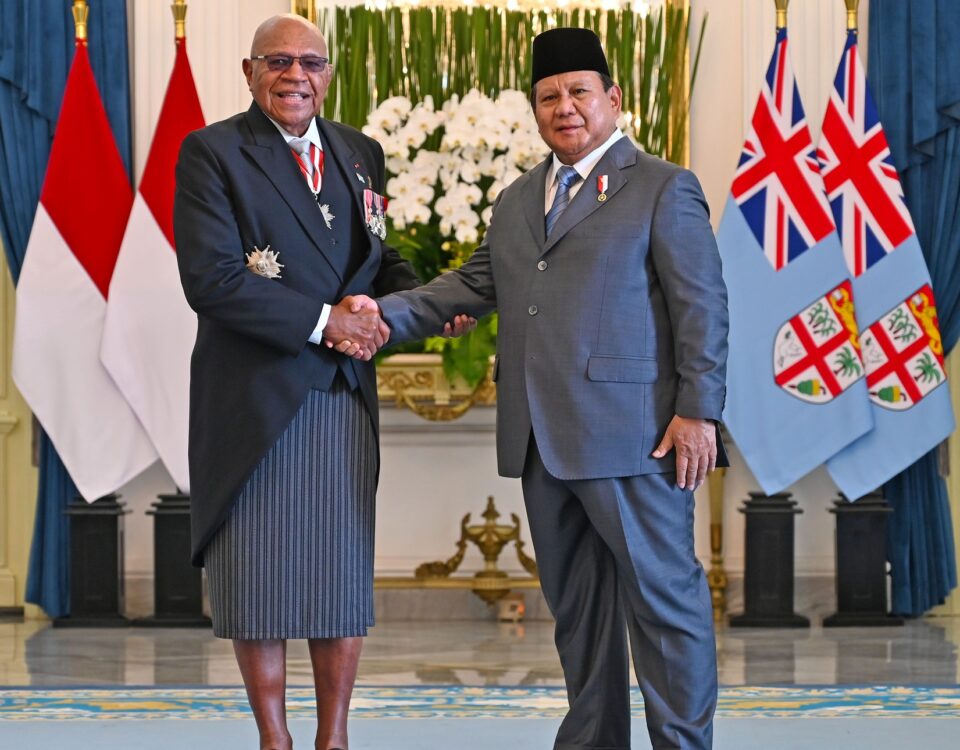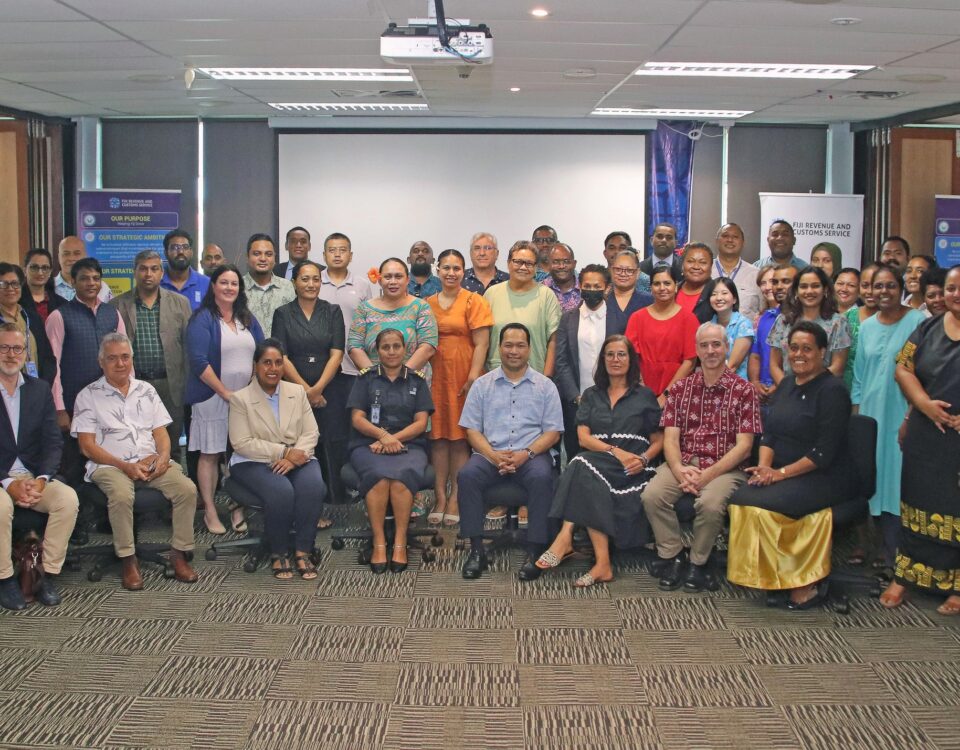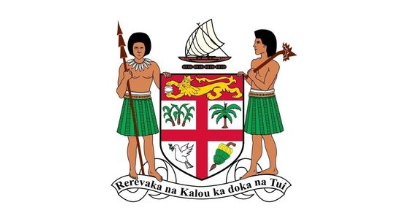
Prime Minister Hon. Voreqe Bainimarama’s Opening Remarks at the Implementing the New Urban Agenda to drive Sustainable Change Dialogue
10/02/2020
Prime Minister Hon. Voreqe Bainimarama’s Statement in Welcoming the President of the State of Israel, H.E Reuven Rivlin
20/02/2020Published On: 11/02/2020
Good Afternoon, Ni Sa Bula Vinaka, and As-Salaam-Alaikum.
I was honoured when my friend, Maimunah Sharif, asked me to join her for today’s event. She and I have crossed paths many times over the past year – from the first-ever UN Habitat Assembly in Nairobi, to the Asia-Pacific Urban Forum in Penang, to COP25 in Madrid, we’ve shared a passionate advocacy for the billions of traditionally-disenfranchised voices of the world: the poor and the climate-vulnerable. With every conference and forum we attend, one thing is becoming increasingly clear: The global challenges of poverty, inequality and climate change can only be solved together – and cities are where we can win those battles. This tenth World Urban Forum has already helped extend recognition of that vital nexus to new corners of the globe.
These are all big challenges that must be matched with equally big, bold and innovative solutions. Here in Abu Dhabi, we can see quite literally what big thinking can get you – and we can all draw inspiration from the UAE’s incredible progress over the past half-century which has produced the urban and cultural marvels that surround us today.
It will take that same brand of bold thinking to set our world on a path of sustainable development. Leaders must step back, see the larger picture, and anticipate where people will live, what they will need and what strategic investments we can make today to save future costs. But no leader can plan for every outcome, nor do any of us hold the answers to every question. Luckily, ingenuity is everywhere – but it’s on us to go out and seek it.
The solutions we need can be born in the minds of citizens, young and old, they can be gleaned from our cultures, drawn from our histories, and sought far beyond our borders. That’s what gatherings like the WUF are all about. I can promise you, I won’t be shy about stealing any of the great ideas I’ve heard at this Forum so far, and neither should any of you.
Within these halls thousands of minds have shared experiences, presented solutions, and compared outcomes –– but really, these exchanges have achieved something far greater. Through these different panels, side-events and meetings, we’re reminding each other that none of us are in this alone. In a world that grows more connected by the day, our progress has never been more collective nor our futures more tightly bound. Of course, no two cities are the same. But no matter where in the world people reside, they seek common threads of fulfilment. People want clear air and clean water. They want homes that can endure through the various chapters of their lives. They want to share strong bonds of nationhood and community. Above all else, they want to know their children’s lives will be better than what they’ve known for themselves.
Fiji strives for that future every day. We do so for our sake, we do so especially for the sake of those most vulnerable. But we also do so knowing that our successes are shared by our fellow global citizens. Every problem we solve adds knowledge and experience that strengthens cities and communities across our region and around the world. That’s why I’m so glad to be here today to mark another milestone in our global cooperation; the launch UN Habitat’s flagship RISE-UP programme.
When we think of the “poor” or the “vulnerable” I’m sure different faces come to mind for each of us. For me, I see the faces of Fijians residing in informal settlements – particularly women, children and those living with disabilities. Raising the resilience of these communities is a pressing priority for Fiji for reasons that, as prime minister, I know all too well. I’ve been on the ground in dozens of communities in the wake of natural disasters, and I can tell you that informal settlements can be hit the hardest.
Six cyclones have struck Fiji in the past four years, including Cyclone Winston –– the strongest-ever storm to make landfall in the southern hemisphere. In the aftermath of these storms, communities on the frontlines can resemble warzones. Palm trees are stripped of their fronds, their bare trunks ensnared by sheet metal whipped through the air at hundreds of kilometres per hour. Wood panelling is peeled from homes and splintered across landscapes. Entire settlements –– and their homes, possessions, and infrastructure –– are inundated by floodwaters, either damaged beyond repair or washed away entirely.
This suffering isn’t a Fijian phenomenon, everywhere on earth climate impacts are amplified by urban poverty. The increasing ferocity of climate-induced disasters alone makes them deadlier, but that threat is compounded further by rapid urbanisation.
If you’re living in an informal settlement, without a sense of ownership or long-term security, it can be difficult – or even impossible – to invest in a safe and sustainable home. All too frequently, this results in shoddy, dangerous construction –– metal roofing hangs precariously over walls made of a patchwork of scrap materials, all without a secure foundation. Around the world, you’ll see homes like this packed in tight proximity, often literally stacked one on top of the other. This poses a critical danger not only to those who live in them, but those around them –– and anyone else who may stand in the path of flying debris. In an age of worsening climate catastrophes, these communities are ticking time bombs.
With more and more of the world’s citizens living in unsustainable informal settlements, and with climate change worsening as global temperatures rise, it’s clear the need to “rise up” to address the sustainability of our urban poor has never been greater.
While many of the problems that this programme aims to tackle will be slow and difficult to change –– like relocating and securing communities with infrastructure investments, increasing literacy and alleviating poverty –– we have one goal that you, in this room, can meet immediately. There is a deeply-entrenched social and institutional stigma that holds back the urban poor, preventing them from being woven into our larger city fabrics. I ask that we recognise and work to shed that stigma, and that you push your peers and your governments to do the same. Be advocates for the urban poor, in word and in action; by doing so, you’re fostering a spirit of inclusivity that serves us all. Because when we involve those we seek to help in what we’re doing, when we talk less and listen more, I believe we can forge the greatest solutions of all.
I look forward to watching the life-changing impact that RISE-UP will have on the urban poor, on our societies, and on the world as a whole.
Vinaka vakalevu. Thank you.





